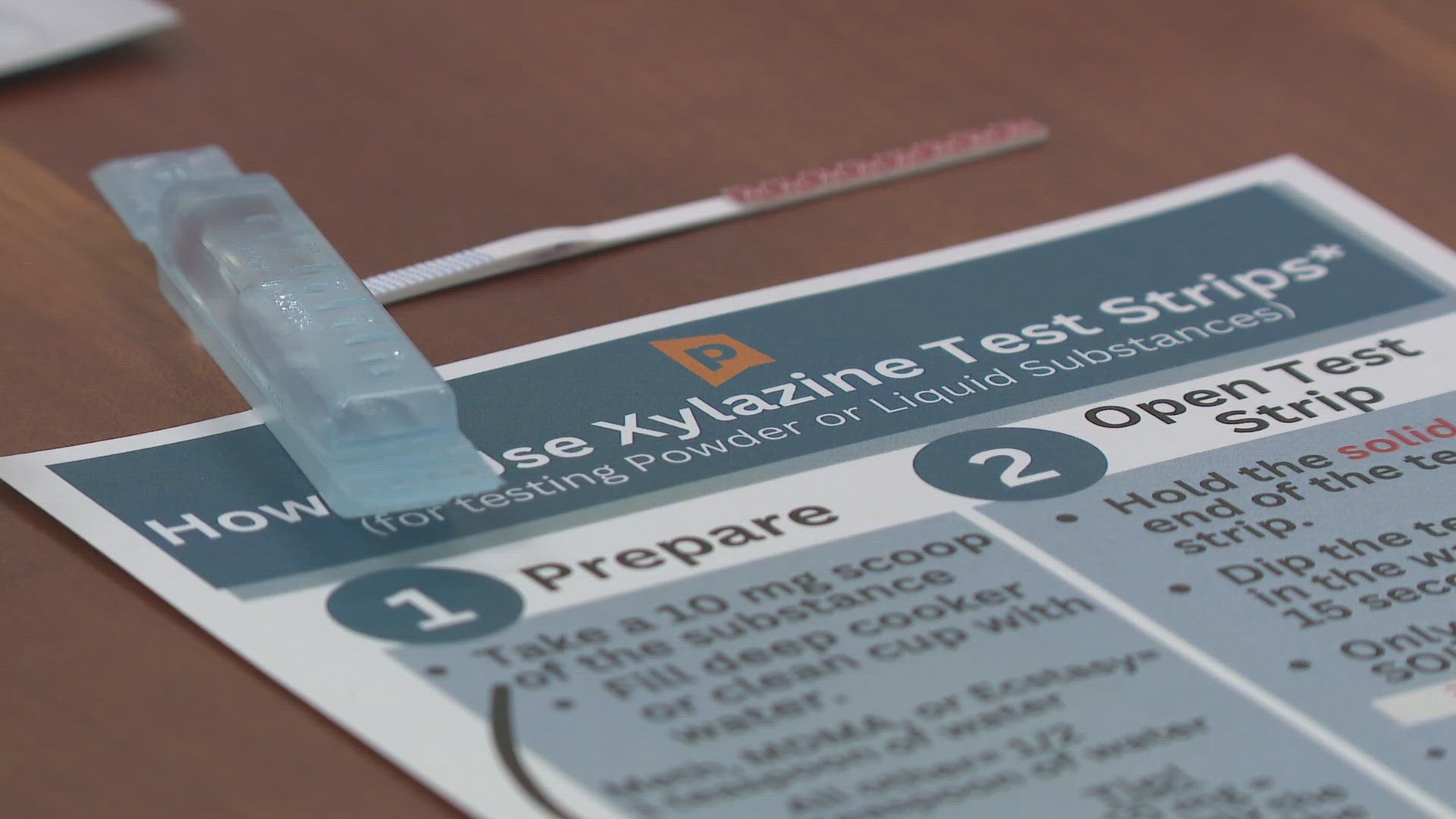PORTLAND, Maine — Maine health officials are sounding the alarm on xylazine, a non-opioid animal sedative, which state officials cite as a growing contributor in overdose deaths.
According to the Maine Drug Data Hub, 17 percent of fentanyl overdose deaths in Maine have also included xylazine—a 10 percent increase compared to last year.
"It's not a little bit, it's a big alarm," Maine Drug Enforcement Agency Bureau Director Rick Desjardins said. "These people are being poisoned to death, there's no question about it."
The drug, also called "tranq," is not intended for human use as it is a non-opioid sedative for animals. Desjardins said the substance is frequently being found in Maine as an additive, combined with other illicit drugs such as heroin or fentanyl.
While the state of Maine has made great strides in distributing naloxone, or Narcan, to be used in the case of an opioid overdose, Desjardins reminds us that because xylazine is not an opioid, its effects will not be reversed by naloxone.
"We certainly are aware of that. We work with the public safety people who are seizing a great deal of drugs coming into the state," Maine Director of Opioid Response Gordon Smith said.
To help the prevention of further harm from the drug, the state recently invested $1 million toward education and testing strips for xylazine.
At Portland Public Health, Kerri Barton of the harm reduction services team said having test strips and supplies on hand is crucial when most of the time people are unsure about the contents of the drugs they are taking.
"The drug supply is very unsafe and has been for several years, so most of the time folks don't know what they're taking," Barton said.
Public health experts say although xylazine is a concern, signs are still pointing toward progress to lower overdoses in Maine.
From January to June of this year, the state saw a 12 percent drop in overall, confirmed, and suspected fatal overdoses when compared to the same period last year, according to recent overdose data.

